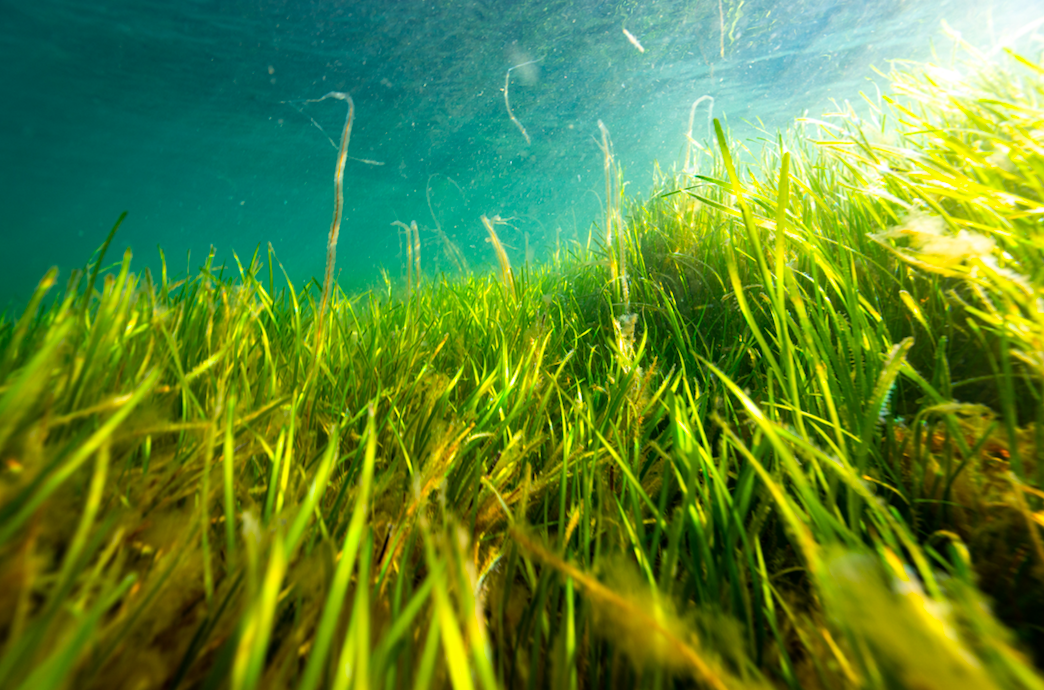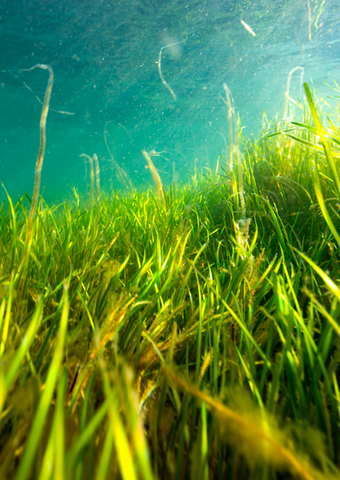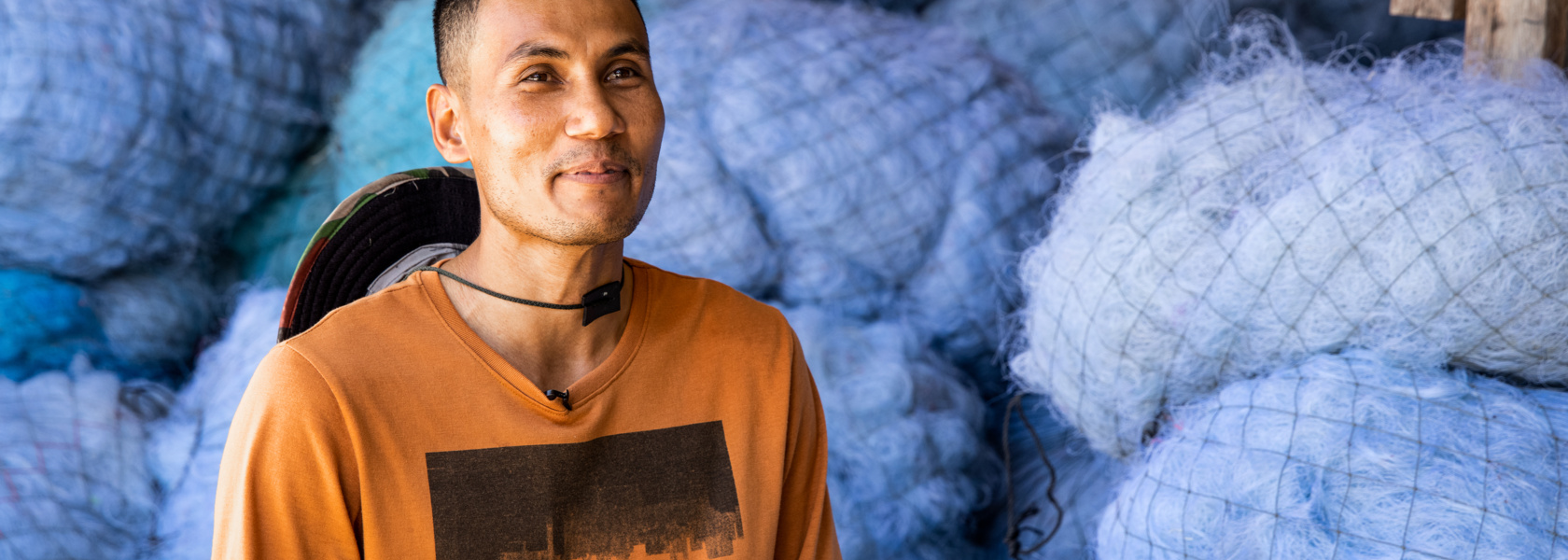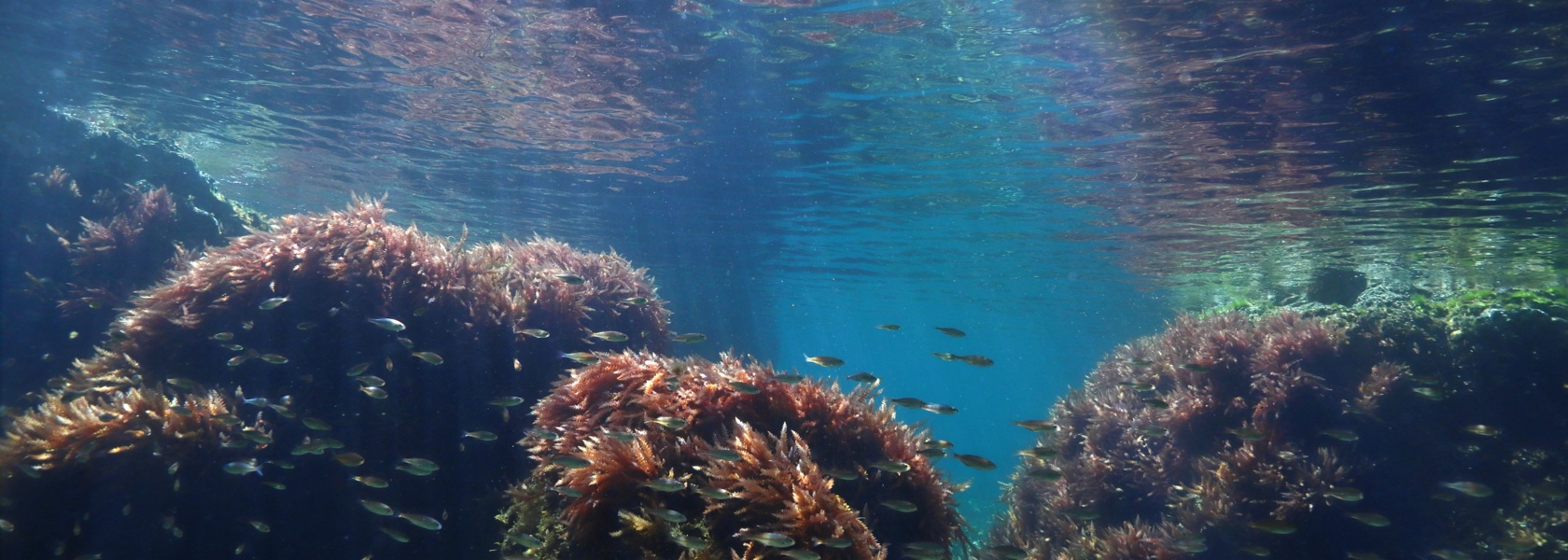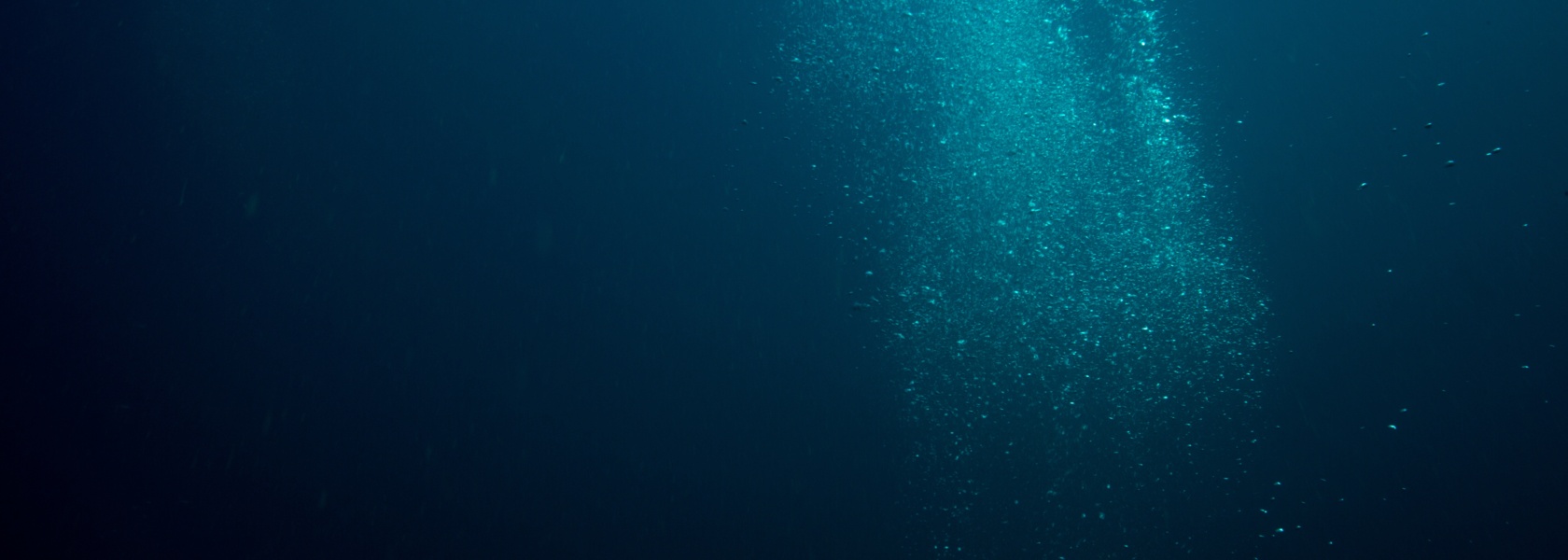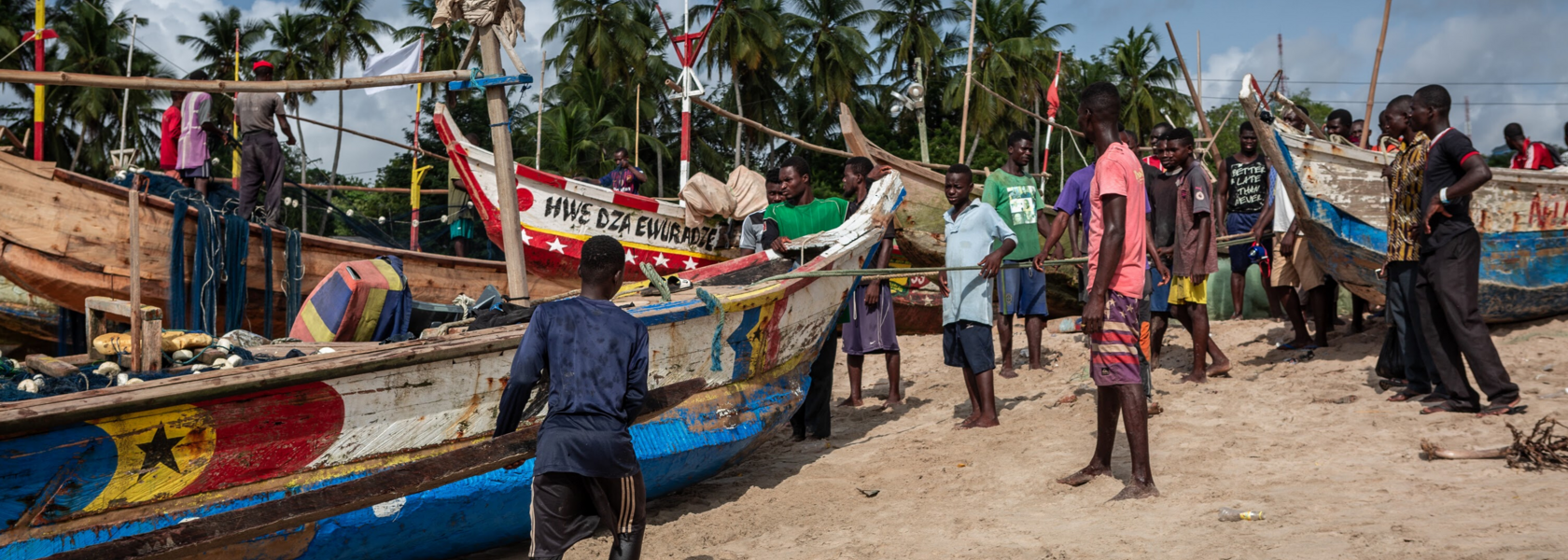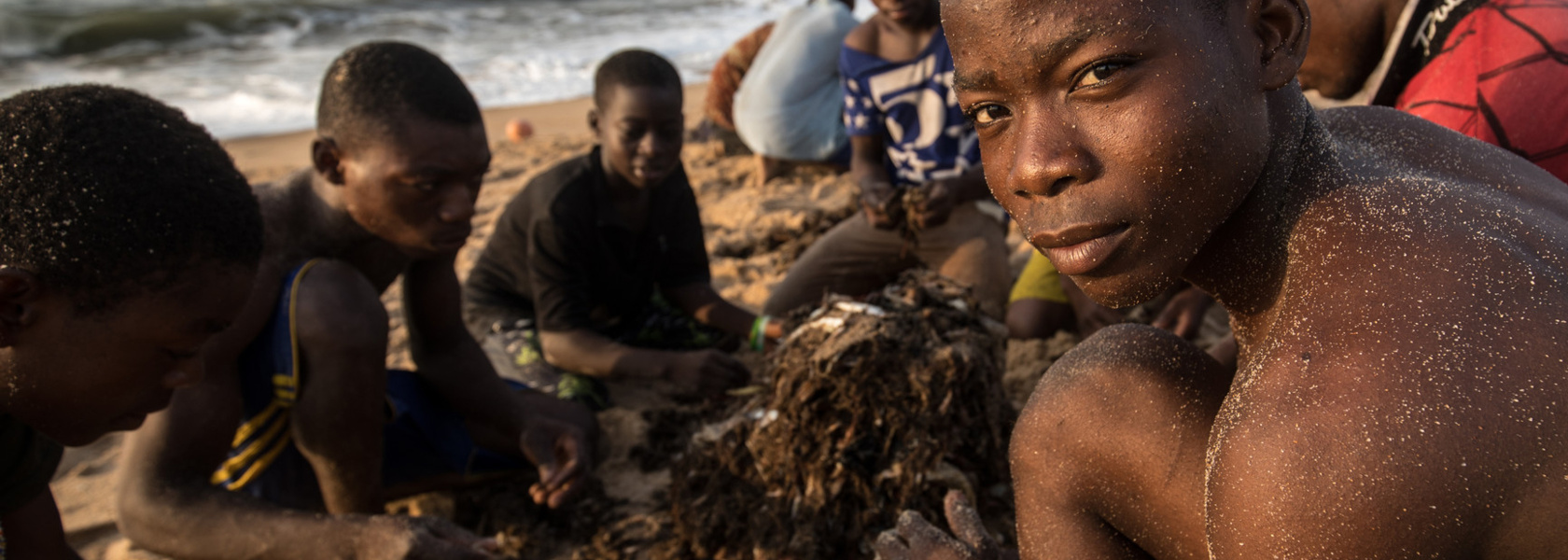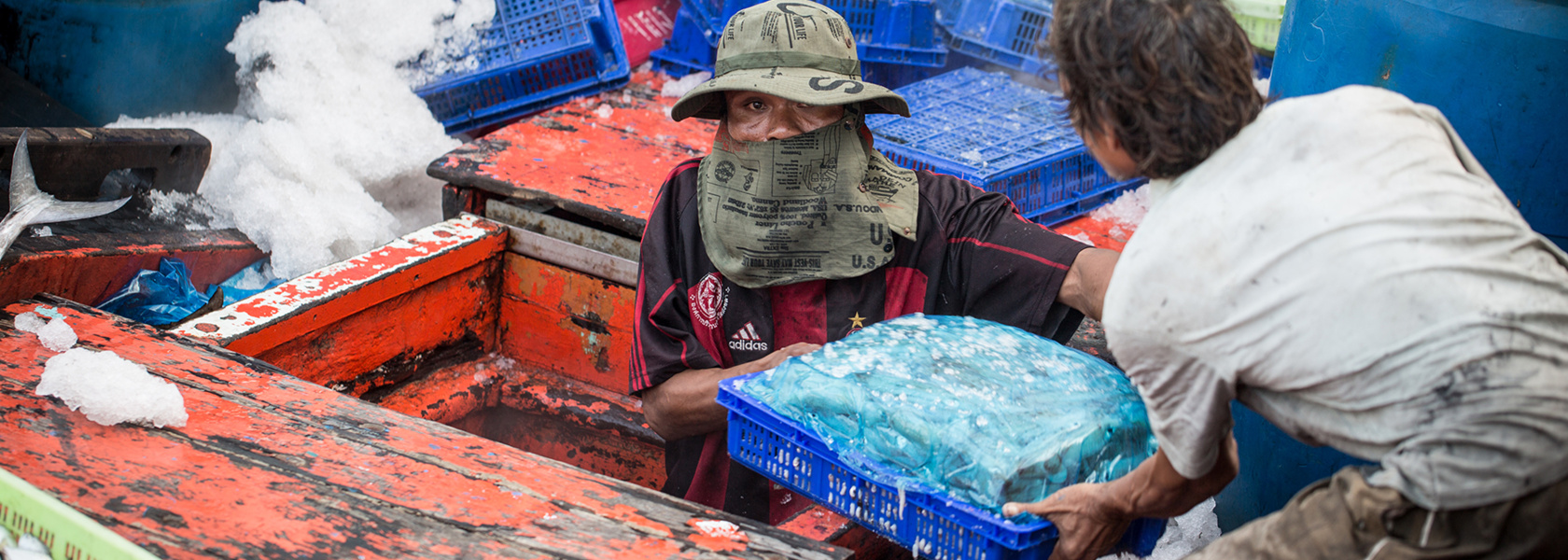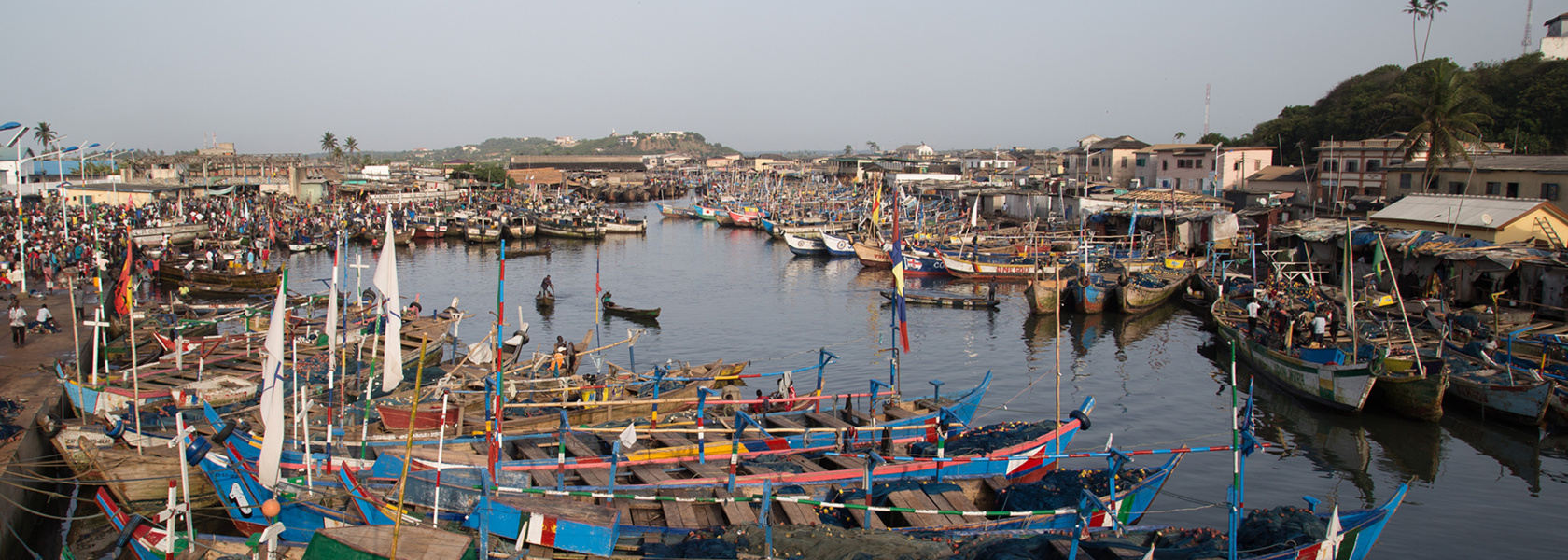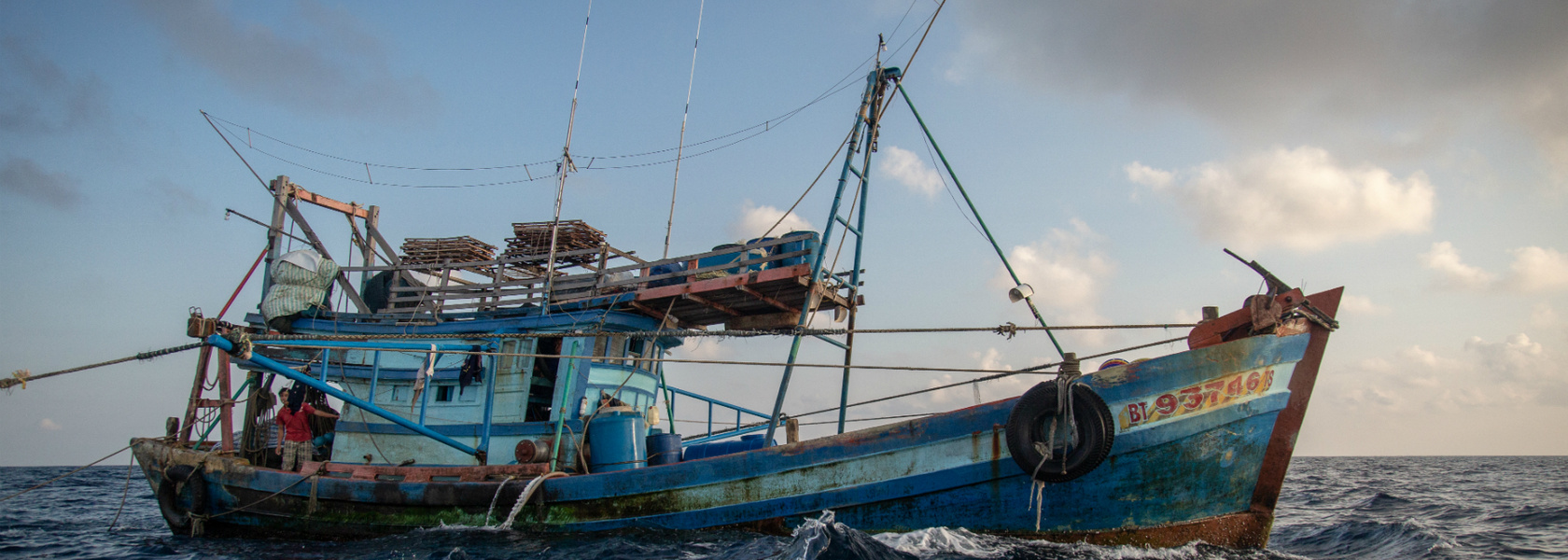Our ocean gives us every second breath. It absorbs around a third of the CO2 we pump out, and has taken in over a nuclear bomb’s worth of heat every second for the past 150 years. It underpins our climate system and keeps our planet habitable: It is the blue beating heart of our planet.
Evidence continues to pile up that thriving ocean life is essential for tackling the climate crisis. Yet, when it comes to inclusion in climate policies, marine habitats are often neglected. At the same time, illegal and unsustainable fishing practices are driving the collapse of diverse marine ecosystems across the globe, with devastating consequences for people and for our climate.
We call on national governments to recognise the critical importance of our ocean and blue carbon in the fight against the climate emergency and to take the necessary steps to eradicate illegal and unsustainable fishing to protect marine biodiversity and fisheries in particular.
Protecting our one global ocean
As we face up to global warming, the world must recognise that preserving the vast reservoirs of blue carbon in coastal and marine environments is vital for avoiding catastrophic climate breakdown.
EJF calls for world leaders to:
- Recognise the critical importance of our ocean and blue carbon in the fight against the climate emergency.
- Include specific, legally binding targets to protect and restore blue carbon environments in their updated Nationally Determined Contribution implementation plans, under the Paris Agreement.
- Commit to the 30x30 ocean protection plan and designate at least 30% of the ocean – including ecologically representative areas – as fully or highly protected marine protected areas by 2030.
- Implement an international moratorium on deep sea mining to protect the deep sea from irreversible, large-scale harm.
What is blue carbon?
Blue carbon is the carbon captured by the world's ocean and coastal ecosystems. From coastal mangroves to whales at sea, a thriving ocean filled with life captures carbon like no other ecosystem on Earth.
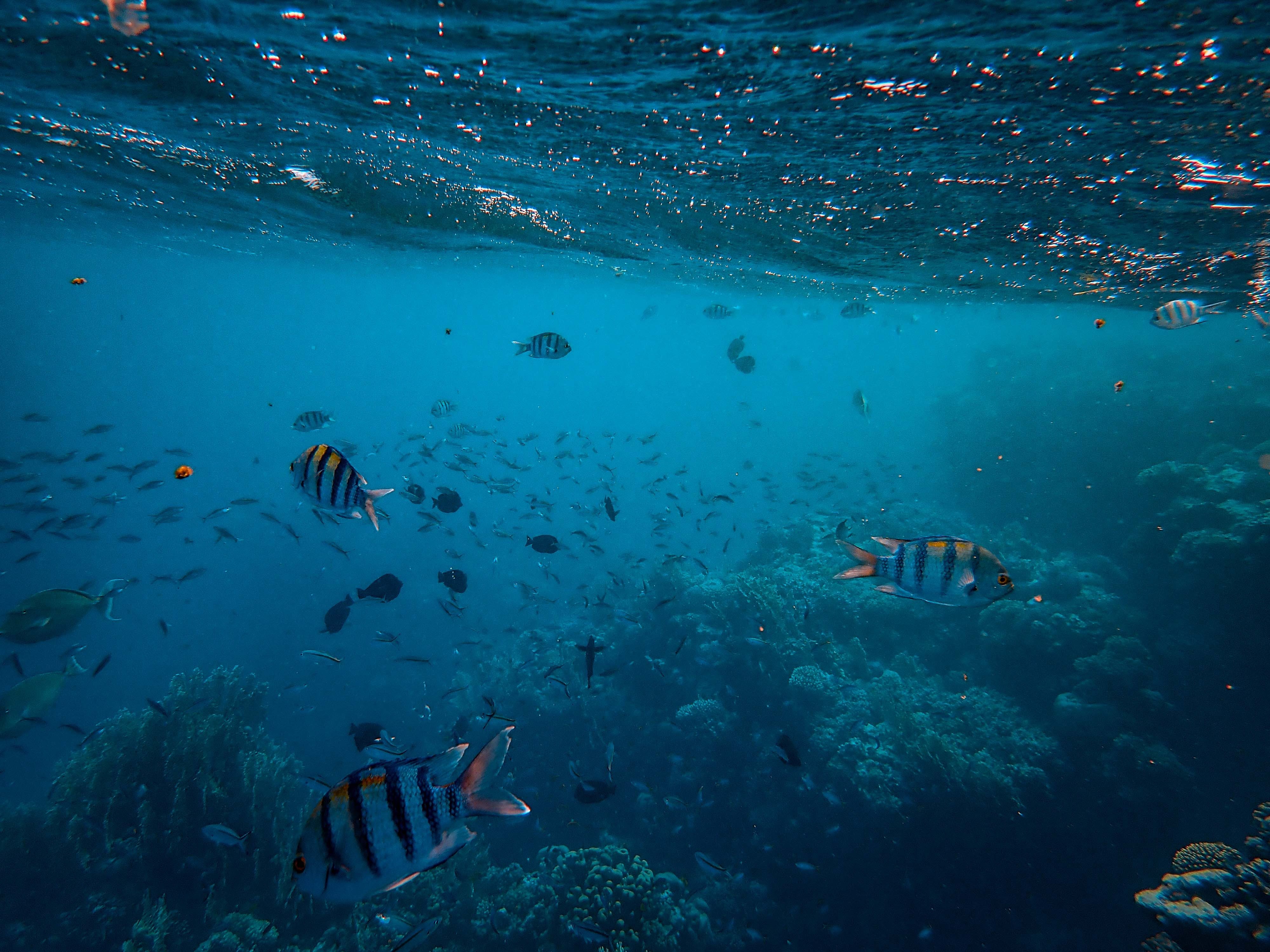
From carbon sink to carbon source
Degradation and destruction of these ecosystems through coastal development, pollution and damaging fishing practices is occurring at a furious rate. Damage to these marine environments reduces their capacity to act as a carbon sink, and increases the release of stored carbon. This results in emissions of CO2, which contribute to the climate crisis.
The current loss of mangroves, salt marshes and seagrass are estimated as among the highest of any ecosystem on Earth. Every half an hour a seagrass meadow the size of a football pitch is destroyed, and the destruction of seagrass is estimated to release around 299 million tonnes of carbon every year. Additionally, the annual loss of all coastal wetlands is estimated to release around 450 million tonnes of carbon.
And it isn't just marine plants we need to cherish. In the last decade scientists have discovered that the so-called "great whales" lock up large amounts of carbon from the atmosphere – up to 30,000 kilos over a lifetime. Some of this sinks to the ocean floor when they die, where it is stored in sediments for vast periods of geological time. Their faeces fertilise the surface waters, feeding microscopic algae called phytoplankton, that produce a vast volume of the oxygen we breathe and absorb billions of tonnes of carbon every year.
Alarming rates of destruction
Every half an hour a seagrass meadow the size of a football pitch is destroyed, and the destruction of seagrass is estimated to release around 299 million tonnes of carbon every year.
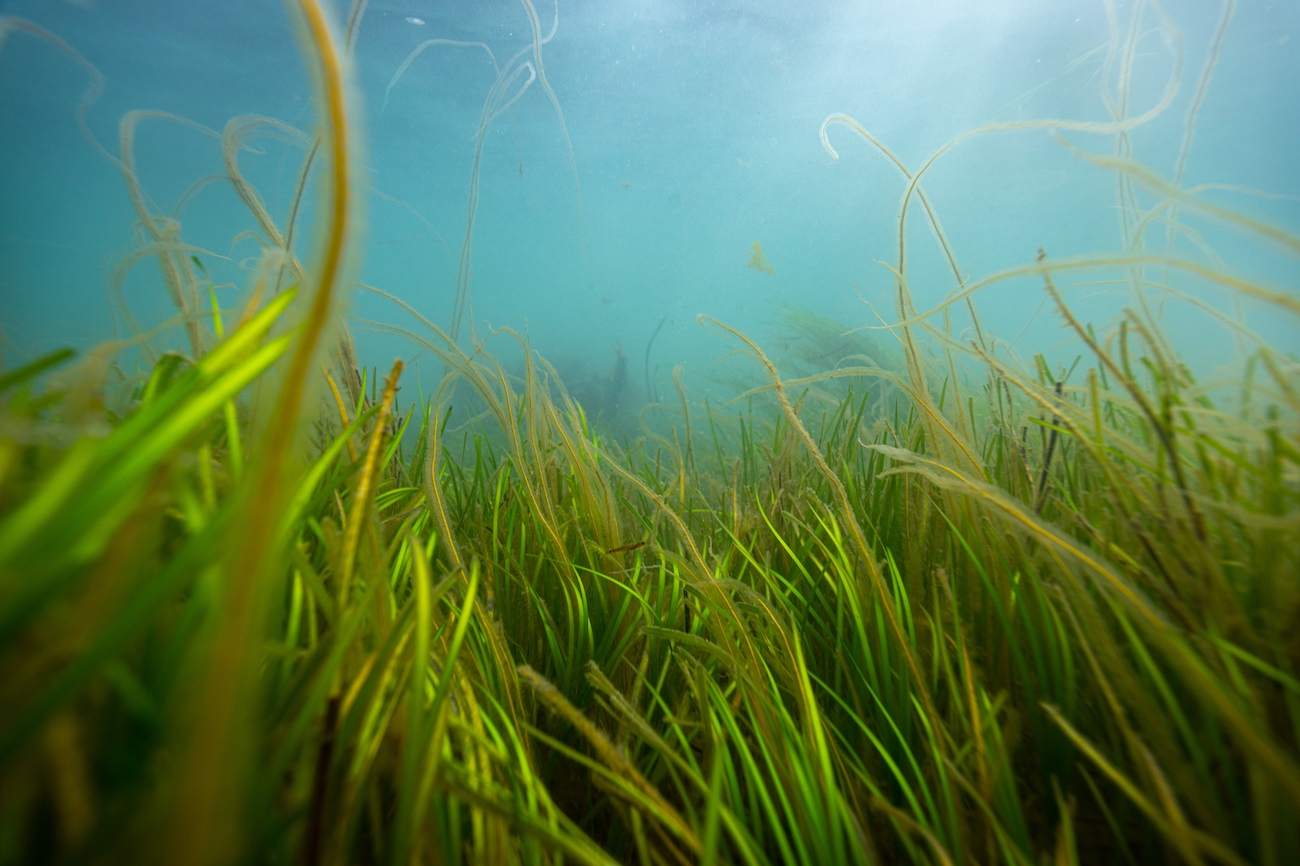
Protecting our climate, wildlife and livelihoods
The protection of marine environments is vital in the mitigation of climate change. Preservation of these ecosystems will cut carbon emissions, and their effective management will also promote increased carbon uptake. Sequestering and storing blue carbon demonstrates the opportunities within nature-based solutions to tackle global climate change.
Doing this will not only help us address the climate crisis. It will also help us to protect wildlife and people. Blue carbon protection brings economic benefits and food security by helping maintain healthy fisheries and, with 40% of the global population living within 100 kilometres of the coast, plays a vital role in protecting coastal communities from natural disasters, such as storms and flooding.
These benefits make the protection of blue carbon potentially highly cost effective, with over 20% of the most commercially important fish species occupying seagrass meadows at critical stages of their development. Another vital coastal ecosystem, mangroves, reduce flood damage by up to 29% and provide flood protection benefits estimated to be worth at least 65 billion US$ per year.
Vital part of our climate systems
Coastal wetlands store 3-5 times more carbon per acre than tropical forests and seas. The dense meadows of seagrass that lie in coastal waters around the world not only act as nurseries for vast numbers of species, they also contain up to 18% of oceanic carbon.
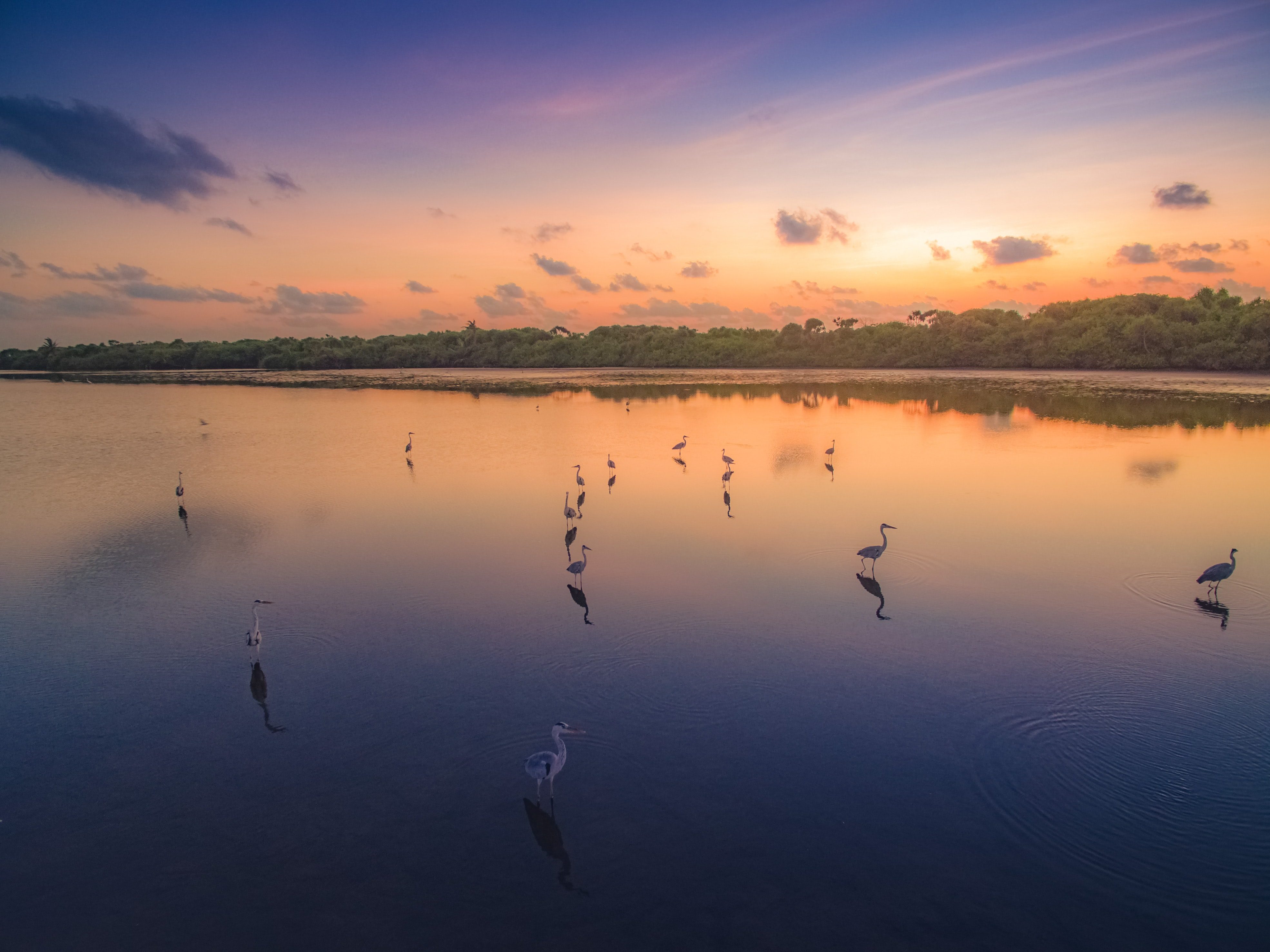
Nature’s solution to climate change
Restoring and protecting blue carbon is by no means an excuse for polluters to continue along a ‘business-as-usual’ path. Increased carbon removal from the atmosphere must also be accompanied by a global reduction in human-related carbon emissions.
However, it is clear that these reservoirs of blue carbon are a remarkable gift. Their protection and restoration remain an effective, low-cost, and natural way of mitigating the global climate crisis. Preserving blue carbon avoids the risk of unanticipated harm from untested high-tech climate fixes. It offers opportunities for countries to achieve their emission reduction targets through Nationally Determined Contributions, while also promoting oceanic and biological health.
Mangroves are essential for wildlife and for us all. They store up to four times more CO2 than tropical rainforest by hectare, but they are under threat. It’s time for seaforestation to support these amazing ecosystems.
Steve Trent, EJF Co-Founder and Executive Director
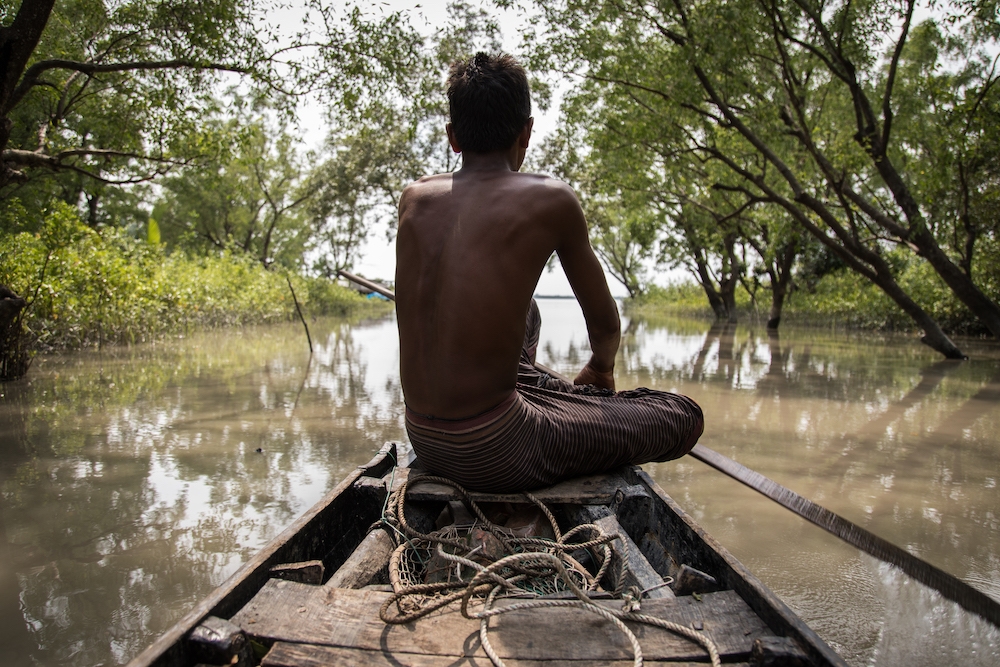
EJF's Blue Carbon Campaign
Despite their incredible importance, blue carbon ecosystems and wildlife don’t get the recognition or protection they deserve. Whales are still struggling, and mangroves and seagrass meadows are in retreat globally. We want to see thriving wildlife and ecosystems, and a "seaforestation" of the mangroves and seagrass meadows which have been lost.
That’s why we are joining with other NGOs, celebrities and scientific experts to send a clear message to world leaders: protect blue carbon! Our open letter to protect ocean environments will be delivered ahead of the crunch climate talks in Glasgow this year.
Blue carbon letter signatories
Organisations
AIDA | Aktionsgemeinschaft Artenschutz e.V. | AllForBlue | APIL Advocates for Public Interest Law | Azul | Blue Resources Trust | Blue Marine Foundation | Citizen of the Earth | ClientEarth | ClientEarth Germany e.V. | Climate 2025 | Coral Reef Alliance | German Ocean Foundation | Destructive Fishing Watch Foundation | Deutsche Stiftung Meeresschutz | Dynamic Planet | Earth Ethics | Earth Justice | Econusa Foundation | Energy Watch Group | Environmental Jurists Association | Environmental Law Foundation | Ethical Consumer | Fair Finance International | fairfish | FishAct e.V. | FishWise | Forest Keeper | Future of Fish | Galapagos Conservation Trust | Gallifrey Foundation | Gesellschaft zur Rettung der Delphine e.V. | Global Ocean Trust | Good Fish | Green Citizens' Action Alliance | Green Fins | Hɛn Mpoano | Indonesia Ocean Justice Initiative | International Marine Mammal Project | International Pole and Line Foundation | International Rivers | KYMA sea conservation & research | Last Real Indians | Living Oceans | Madani Berkelanjutan Foundation | Mangrove Action Project | Manta Trust | M.E.E.R. e.V. | Menschen für Tierrechte e.V. | Mundus Maris | National Taiwan University Graduate Student Association | Netzwerk Klimaherbst e.V. | Ocean. Now! e.V. | Ocean Outcomes | Ocean Summit | Oceanic Global | Oceanic Preservation Society | Okeanos Stiftung für das Meer | Pro Wildlife e.V. | Pusaka Foundation | Rapid Transition Alliance | Rechte der Natur | Reef Check Worldwide | Rethink | Risk Society and Policy Research Center | Safe Seas Project Plan International | Sciaena | Sea Legacy | Sea Shepherd | Sea Shepherd Germany e.V. | SHARKPROJECT Germany e.V. | Shark Stewards | StopFinning Germany e.V. | Surfers Against Sewage | Taiwan Alliance for Advancement of Youth Rights and Welfare | Taiwan Environment and Planning Association | The Ocean Foundation | Turtle Foundation | Turtle Island Restoration Network | The Climate Optimist | The Wildlife Trusts | Verein für Mangrovenschutz e.V. | Waterkeeper Alliance | West Coast Environmental Law | Wildlife Conservation Society | Whale & Dolphin Conservation | Whale & Dolphin Conservation gGmbH | Women's Environmental Network | Yagasu | Zoological Society of London
Public figures
Gordon Buchanan - Award-winning wildlife cameraman, presenter and public speaker
Joanna Lumley - Actress, former model, presenter and television producer
Helena Ann Kennedy, Baroness Kennedy of The Shaws QC, FRSA
Sir Michael Andrew Bridge Morpurgo - Author
Dona Bertarelli - Philanthropist and activist
Lucy Campbell - Olympic surfer
Tobias Friedrich - Underwater photographer
Zoe Wanamaker - Actress
Markus Mauthe - Nature photographer and environmental activist
Cristina Mittermeier - Photographer, co-founder and CEO of Sea Legacy, National Geographic Adventurer of the Year 2018
George Monbiot - Journalist and author
Paul Nicklen - Photographer and filmmaker (e.g. for National Geographic) and co-founder of Sea Legacy
Ellie Turner - Olympic surfer
Tom Vierus - Photographer, filmmaker and marine biologist
Vivienne Westwood - Fashion designer
Wyland - Marine artist and writer
Will Harlan, Journalist, author and environmentalist
Ben Goldsmith - Financier and environmentalist
Finlay Pringle - Marine conservationist and activist
Hanli Prinsloo - Marine conservationist and activist
Scientists
Dr. Thomas Appleby - Expert in environmental and marine law
Prof. Chris Armstrong - Professor of Political Theory
Dr. Melanie Bergmann - Marine biologist
Matt Bjerregaard Walsh - Consultant at UN FAO Fish
Prof. Brendan Godley - Professor for Marine Conservation
Prof. Mark Everard - Professor for Ecosystem Services
Prof. Peter Jones - Reader in Environmental Governance
Dr. Florian Huber - Underwater archaeologist and founder of Submaris
Prof. Pavel Kabat - Research Director of the World Meteorological Organization
Prof. Dr. Silja Klepp - Co-founder of EnJust
Prof. Xavier Lambin - Professor of Zoology
Dr. Richard Lilley - Managing Director and Co-Founder of Project Seagrass
Prof. Dr. Darrel Frank Moellendorf - Professor of International Political Theory
Prof. Dr. Hermann Ott - Chairman ClientEarth e.V. - Advocates of the Earth
Carl Safina - Ecologist and author
Prof. Beth Scott - Professor of Marine Ecology
Dr. Richard Unsworth - Co-founder of Project Seagrass
Dr. Georg Winter - Environmental economist
Dr James Dyke - Senior Lecturer in Global Systems
Dr Wolfgang Knorr - Senior Research Scientist, Physical Geography and Ecosystem Science
Dr J. Patrick Megonigal, Ecosystem Ecologist, George Mason University
Political representatives
Ambassador Ronald Jumeau - Ambassador for Climate Change and Small Island Developing State Issues of the Republic of Seychelles
Alviina Alametsä MEP - Group of the Greens/European Free Alliance
Basilio Araujo - Deputy Minister for Maritime and Energy Sovereignty coordination of Coordinating Ministry of Maritime and Investment Republic of Indonesia
Clare Bailey MLA - Leader of Northern Ireland Green Party
Tudor Ciuhodaru MEP - Group of the Progressive Alliance of Socialists and Democrats in the European Parliament
Edward Davey MP - Liberal Democrat Party Leader and Member of Parliament for Kingston and Surbiton
Cyrus Engerer MEP - Group of the Progressive Alliance of Socialists and Democrats in the European Parliament
Barry Gardiner MP - Labour Party MP for Brent North
Heidi Hautala MEP - Group of the Greens/European Free Alliance
Baroness Jenny Jones - Green Party
Grace O'Sullivan MEP - Group of the Greens/European Free Alliance
Petros Kokkalis MEP - Left group in the European Parliament
Steffi Lemke MdB - Member of Greens in the German Bundestag
Ralph Lenkert MdB - Member of Left Party in the German Bundestag
Caroline Lucas MP - Green Party MP for Brighton, Pavilion
Dace Melbarde MEP - European Conservatives and Reformists Group
Karen Melchior MEP - Renew Europe Group
Lord Jeffrey William Rooker, PC - Labour Life Peer and former Environment Minister
Sylwia Spurek MEP - Group of the Greens/European Free Alliance
Lord Robin Teverson - Liberal Democrat Life Peer
Nils Torvalds, MEP - Svenska folkpartiet, Finnland
Marie Toussaint MEP - Group of the Greens/European Free Alliance
Ernest Urtasun MEP - Group of the Greens/European Free Alliance (Vice Chair)
Sarah Wiener MEP - Group of the Greens/European Free Alliance
Michael Wiezik MEP - Group of the European People's Party
Tiemo Wölken, MEP - Group of the Progressive Alliance of Socialists and Democrats in the European Parliament
Frank Schwabe, MdB - Member of Social Democratic Party in the German Bundestag
洪申翰 (Sun-Han Hung) MP - Democratic Progressive Party MP without constituency
蔡壁如 (Pi-Ru Tsai) MP - Taiwan People's Party MP without constituency
邱顯智 (Hsien-Chih Chiu) MP - New Power Party MP without constituency
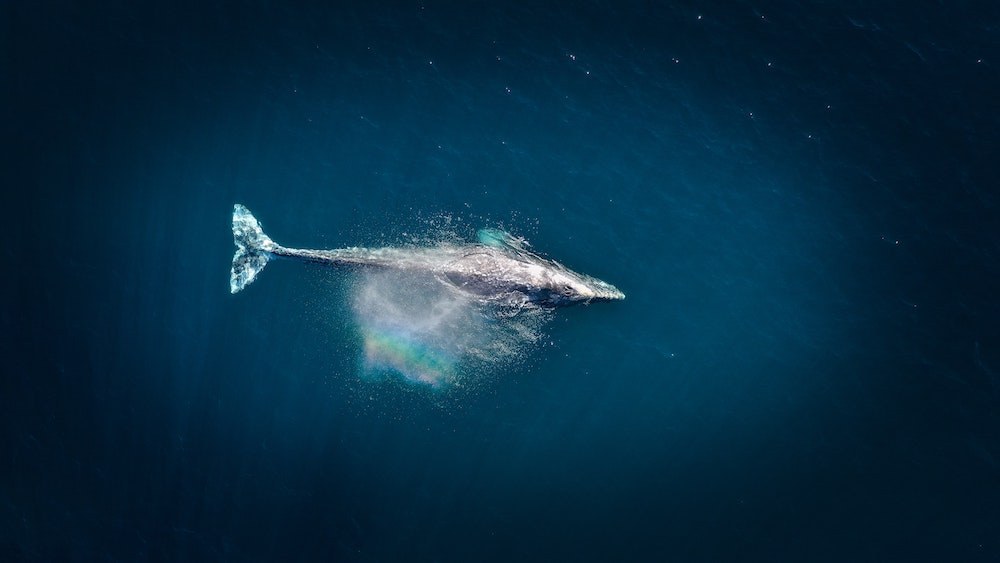
We all depend on our ocean, but it’s under siege from climate breakdown, habitat destruction and the threat of deep sea mining chaos. 2021 is the year this has to change.
Steve Trent, EJF Co-Founder and Executive Director
SIGN UP FOR OUR EMAILS AND STAY UP TO DATE WITH EJF
